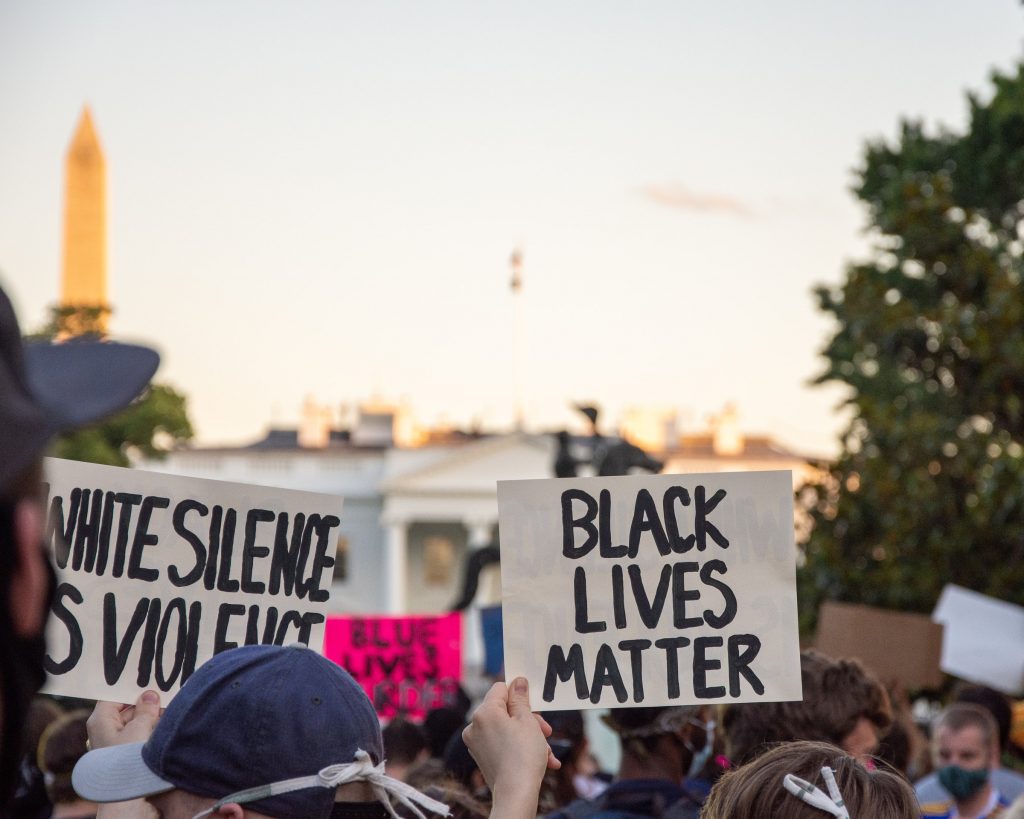
In the wake of the murder of George Floyd by a white police officer in Minneapolis — and an exhaustive history of racial injustices — protesters around the world are rallying against racism. As the unrest amplifies, so do the painful emotions of trauma, anger, sorrow, frustration, and fear.
Just as destruction is always faster and easier than creation, it is far easier to break hearts than to heal them. It’s easier to demonize protesters as thugs than it is to truly see them, to sit down and listen to them. It’s easier to stand in fear and throw tear gas and swing batons than to show kindness and empathy. It’s easier to stay silent and seemingly neutral than to stand in solidarity with the Black community. It’s easier to keep on with the status quo than to choose to engage in the difficult work of making change happen.
But just because it’s easier, does not mean it’s right. We need to do the work — the hard, seemingly overwhelming work — of replacing fear with trust, compassion, and a better way forward.
We need trust, but what we’re seeing is the effect that a systemic lack of trust creates. We’re seeing an uprising caused by centuries of oppression and cultural wounds. A response to people’s lives being taken and names turned into hashtags again and again, or worse, forgotten or never known. We can talk about the broken trust of social contracts, but that assumes there was any trust there to begin with.
The work we need to do is not about repairing broken, power-driven systems based on entitlement and the ideology that some groups are superior to others. It’s about dismantling them and collectively creating systemic change that reimagines the world in a way that is anti-racist, equitable, and inclusive, that is based on love and generosity.
We need leaders we can trust to build new systems we can trust: systems that treat everyone with respect, dignity, and humanity. Systems that honor and uphold the ideals behind them: to protect and serve people of all races, ethnicities, and backgrounds.
We need to shed our false sense of virtue and acknowledge the ongoing, deep-seated problems of the unjust systems we have built. We need to make a deep commitment to bring about real, desperately needed social change at a systemic level.
We need to take concrete actions as allies to the Black community to do more to interrupt our own biases and to help shine sunlight on racism and injustice.
We need to listen. Deeply listen if we want to understand how to lead and accompany in times like this.
We need to see and value others. As they are, without prejudice. And we need to see ourselves so we can understand the roles we are playing, knowingly or unknowingly, and make informed decisions on the roles we want to play moving forward.
We need to learn. To prioritize learning about others and their lived experience, their struggles, their pain without turning away, nor making it about us.
We need to engage in honest conversations about racism and inequality. These conversations can be difficult and we need to have them with our families, our friends, our neighbours, our colleagues, our classmates, our communities, and our leaders. We need to create brave spaces for these, to not get defensive, and to reconcile our own complicitness in building these outdated systems of oppression.
We need to take sustained action and do better, together, so that our world is a world where Black lives matter.
Here are some places to start:
- National Museum of African American History’s “Talking About Race” Web Portal
- A collection of toolkits, handouts, guides, and other resources by the Anti-Oppression Resource & Training Alliance (AORTA)
- Collection of strategies and tools for addressing structural racism by Racial Equity Tools
- Guidelines for Being Strong White Allies, adapted from Uprooting Racism: How White People Can Work for Social Justice by Paul Kivell
- Donate to 38 different bail organizations working to free protesters in the US.


Liz
Great post!